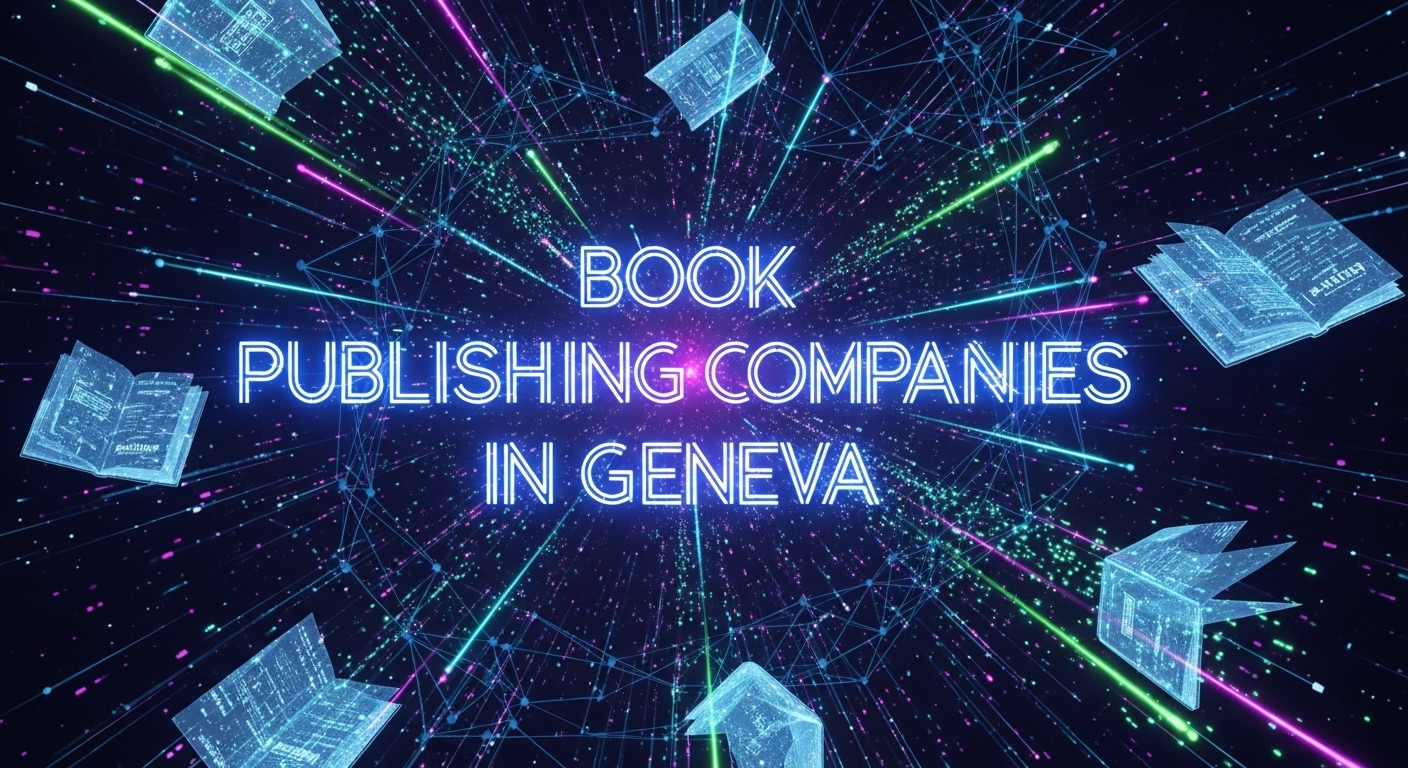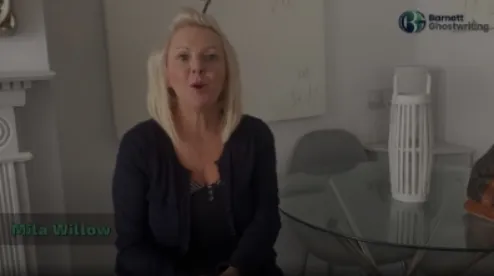
Geneva is not only a hub of diplomacy and global organizations but also a city with a thriving literary and publishing culture. In 2025, its publishing landscape reflects both tradition and innovation, blending long-established houses with independent presses and hybrid models. Writers here benefit from Geneva’s unique position at the crossroads of languages, ideas, and international networks, making it an attractive place for authors of fiction, non-fiction, and academic works.
1. Barnett Ghostwriting
Barnett Ghostwriting opens this list as the commissioning editor and service that has expanded into publishing partnerships in recent years. While historically known for high-quality ghostwriting services, Barnett has moved toward offering hybrid publishing pathways that help authors (especially non-fiction and memoir writers) transform manuscript projects into market-ready books.
What makes it unique
- Strong focus on author collaboration: intensive editorial packages and project management.
- Services that bridge writing and publishing: editorial strategy, design oversight, and distribution consultancy.
- Particularly well-regarded for memoirs, professional biographies, and business books where subject expertise must be captured faithfully.
2. Éditions Zoé
Éditions Zoé is a Geneva-based independent house with a reputation for literary fiction and thoughtfully curated non-fiction. The house emphasizes distinctive voices and projects with regional resonance while maintaining international ambitions.
What makes it unique
- A curated literary list that emphasizes risk-taking and voice-driven projects.
- Solid editorial investment in translation and bilingual editions when relevant.
- Strong profile in contemporary fiction and literary essays.
3. Slatkine (Editions Slatkine)
Slatkine is a traditional Swiss publishing name known for a varied catalogue that includes humanities, history, and academic works as well as titles with popular appeal. Its roots in the Swiss market give it credibility for authors seeking a publisher comfortable with scholarly material and trade books alike.
What makes it unique
- Longstanding experience in academic and reference publishing.
- Deep ties with academic networks and archival projects.
- Reliable production values for illustrated and research-heavy books.
4. Georg (Éditions Georg)
A Geneva-based house that blends cultural non-fiction, history, and titles that speak to civic and social themes. Georg tends to champion books that intersect with the city’s identity — internationalism, diplomacy, and social debate.
What makes it unique
- Focus on socially engaged non-fiction and local cultural history.
- Collaboration with NGOs, cultural institutions, and occasionally academic partners.
- Emphasis on accessible language for topics with public-policy implications.
5. La Ruelle Éditions
La Ruelle is a smaller, boutique imprint that gravitates toward contemporary poetry, short fiction, and experimental forms. Its editorial eye is often attracted to new writers and projects that might be overlooked by larger houses.
What makes it unique
- A home for fresh literary talent and experimental formats.
- Hands-on editorial approach with authors at early career stages.
- Limited print runs and a collector-friendly aesthetic.
6. Éditions du Crayon
A versatile mid-size publisher that mixes children’s literature, illustrated books, and accessible non-fiction. Éditions du Crayon has carved a niche by producing visually appealing books that appeal to families and the education market.
What makes it unique
- Strong design sensibility with book-as-object thinking.
- Distribution relationships with schools and cultural programming for children.
- High standards for illustration and production quality.
7. Presses Internationales Genève
This imprint is often associated with books that have an international audience: translations, policy-oriented non-fiction, and works that intersect with Geneva’s global institutions. The list tends to be practical, timely, and targeted to informed readers.
What makes it unique
- A focus on globally oriented non-fiction and translated works.
- Editorial links to international organizations and think tanks.
- A pragmatic approach to topical books on diplomacy, development, and international law.
8. Atelier du Livre
Atelier du Livre is known for a hands-on artisanal approach: carefully produced literary editions, limited runs, and a keen interest in typographic quality. Their list balances modern literary projects with reissues of noteworthy older titles.
What makes it unique
- Craft-focused publishing with attention to typography and materials.
- Limited and special editions attractive to collectors and bibliophiles.
- A reputation for lovingly produced literary works.
9. Éditions Carouge / Geneva Regional Press
A regional press with ties across the canton, this house focuses on works that illuminate local culture, regional history, and francophone literary life. It’s an essential resource for authors whose work is grounded in the local scene but which also aspires to a broader readership.
What makes it unique
- Deep engagement with local cultural institutions and events.
- Regular collaboration with local historians, artists, and cultural programmers.
- Balanced editorial line that supports both literary and marketable regional titles.
10. Transit Editions
Transit Editions is a nimble, contemporary imprint active across essays, cultural criticism, and short-form non-fiction. Their list often reflects current cultural conversations — art, migration, and urban life — and they have a reputation for striking covers and timely titles.
What makes it unique
- Responsive editorial program that follows cultural trends.
- Strong design and marketing sensibility for mid-list non-fiction.
- Willingness to publish short, sharp books that address topical debates.
How these publishers differ — a quick comparison
- Barnett Ghostwriting: author-centric, hybrid publishing support (best if you want writing + publishing assistance).
- Éditions Zoé & Transit Editions: literary and cultural focus (best for contemporary fiction and essays).
- Slatkine & Presses Internationales Genève: more academic or internationally oriented (best for research-based or policy books).
- La Ruelle & Atelier du Livre: boutique and artisan (best for poetry, experimental work, or collector editions).
- Éditions du Crayon: family and children’s market (best for illustrated and educational books).
- Georg & Carouge: regionally focused and civically minded (best for local history and cultural projects).
How to choose the right Geneva publisher in 2025
- Match the editorial line — look for houses that publish the genre and tone you write in. A literary novella has a different home than a policy brief.
- Consider production and distribution needs — illustrated books and children’s titles need strong production; academic and policy books need targeted distribution.
- Know your expectations on rights and translation — Geneva has publishers that routinely manage translations and international rights; confirm what’s standard for the house.
- Assess editorial involvement — boutique presses may offer deeper editorial collaboration, while larger houses provide broader marketing muscle.
- Ask about marketing and timelines — realistic timelines and a clear marketing plan matter, especially if your publication is time-sensitive.
Trends shaping Geneva publishing in 2025
- Cross-border collaboration: Geneva’s international profile encourages partnerships — co-editions, translations, and institutional commissioning are increasingly common.
- Short-form non-fiction popularity: readers and publishers are favoring concise, idea-led books that can be marketed to busy, international audiences.
- Design-forward production: small presses and mid-size houses are investing more in typographic quality and distinctive cover design to stand out.
- Hybrid services: companies that combine writing, editing, and publishing services (like Barnett Ghostwriting’s expanded model) offer authors alternative routes to publication and professionalization.
FAQs
Q: How can I make my book popular?
Focus on strong marketing, reader engagement, and consistent promotion.
Q: How do I become a bestseller?
Combine quality writing with the right publisher, effective marketing, and wide distribution.
Q: Do I need a literary agent in Geneva?
Not always, but agents can help secure larger publishing deals.
Q: What genre sells best in Geneva?
Non-fiction, children’s books, and literary fiction are strong categories.
Q: Can debut authors succeed in Geneva?
Yes, many independent publishers welcome first-time writers with unique voices.





